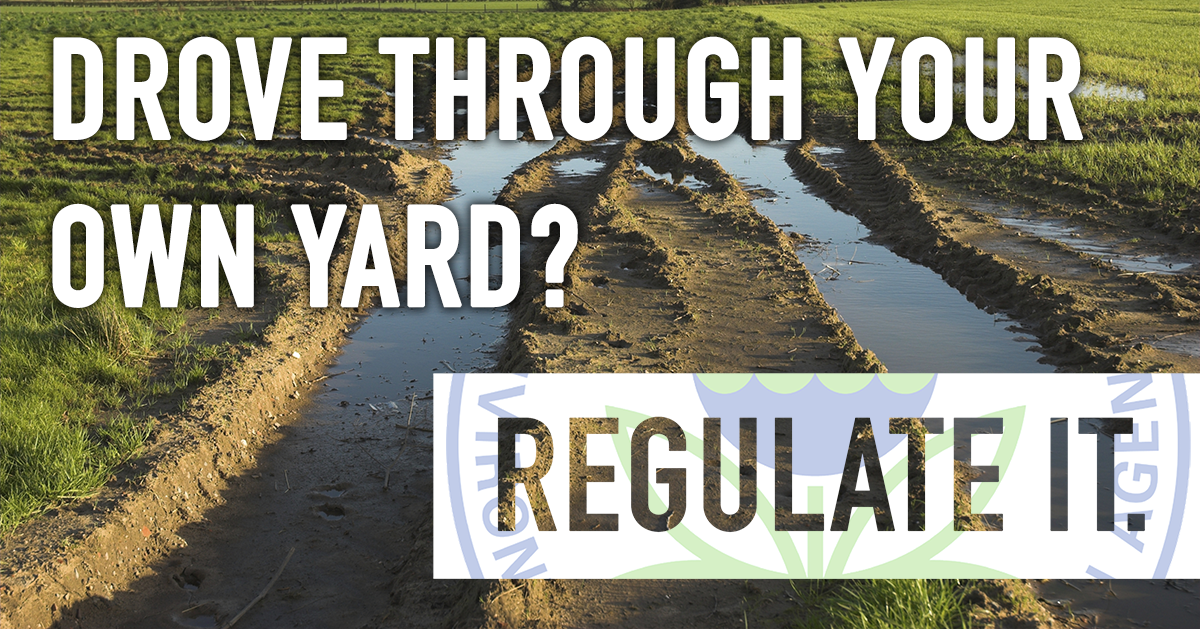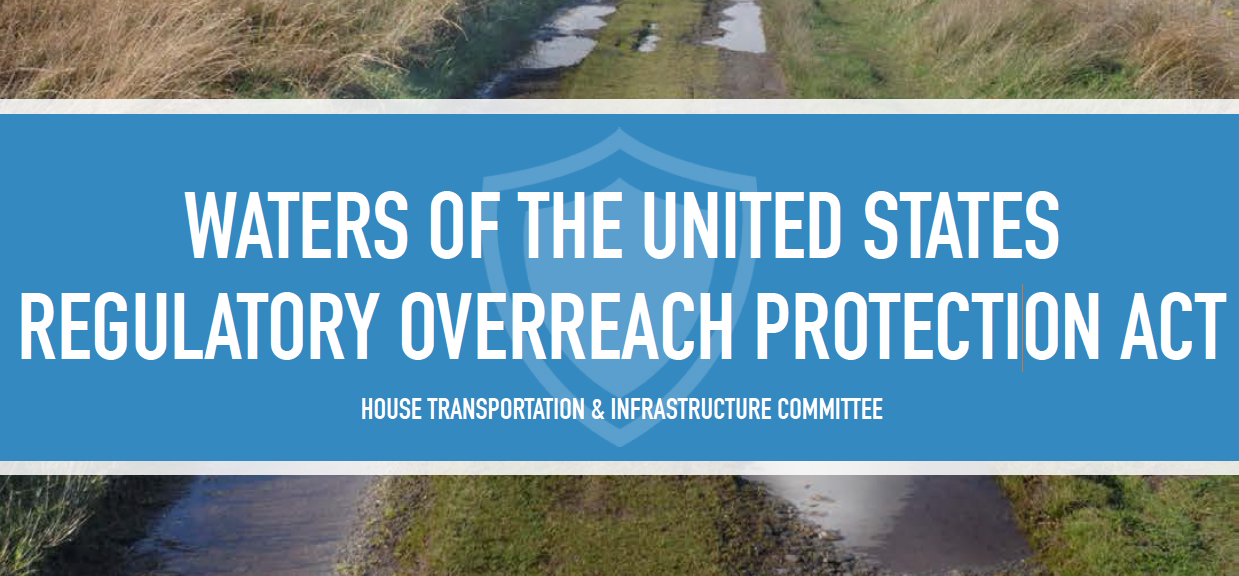Press Releases
House-Passed Bill a Strong Bipartisan Message to Administration That It Cannot Change Law on Its Own & Expand Executive Branch Powers to Regulate Waters Bipartisan legislation to prevent the Administration from bypassing Congress, changing the scope of existing law without authority, and expanding its own limited powers to regulate waters under the Clean Water Act, was approved by the House of Representatives today. The Waters of the United States Regulatory Overreach Protection Act (H.R. 5078) is legislation that upholds the federal-state partnership to regulate the Nation’s waters and prohibit the Environmental Protection Agency and the Army Corps of Engineers from implementing a rule that threatens to open many new waters and private property to federal regulation, including ditches, man-made ponds, floodplains, riparian areas, and seasonally-wet areas. Bipartisan legislation to prevent the Administration from bypassing Congress, changing the scope of existing law without authority, and expanding its own limited powers to regulate waters under the Clean Water Act, was approved by the House of Representatives today. The Waters of the United States Regulatory Overreach Protection Act (H.R. 5078) is legislation that upholds the federal-state partnership to regulate the Nation’s waters and prohibit the Environmental Protection Agency and the Army Corps of Engineers from implementing a rule that threatens to open many new waters and private property to federal regulation, including ditches, man-made ponds, floodplains, riparian areas, and seasonally-wet areas. The legislation, which passed the House by a vote of 262 to 152, is sponsored by U.S. Rep. Steve Southerland (R-FL), and is cosponsored by a bipartisan group of House Members that includes Transportation and Infrastructure Committee Chairman Bill Shuster (R-PA) and Water Resources and Environment Subcommittee Chairman Bob Gibbs (R-OH). “I am pleased that the House has acted in a bipartisan fashion to turn back a sweeping growth of government that threatens the successful federal-state partnership that’s been making our waterways cleaner for over 40 years,” Southerland said. “By recognizing the role that states must play in regulating waters within their respective boundaries, the House has taken an important step forward in restoring the certainty our farmers, manufacturers, and construction and transportation industries need to grow America’s economy.” “This bill addresses another example of an over-reaching Administration trying to force more federal control over the lives of our citizens, farmers, home builders, and other job creators,” Shuster said. “Congressman Southerland’s bill simply prevents the EPA and the Corps from finalizing this ill-conceived proposed rule and directs the agencies to consult with state and local officials to develop a reasonable approach to regulation that respects the federal-state partnership called for in the Clean Water Act.” “This proposed rule would have sweeping economic and regulatory implications for the entire country,” Gibbs said. “It is a power grab by the Administration that undermines the role of state governments in protecting their lands and waters. This legislation will preserve existing rights and responsibilities, as well as uphold the federal-state partnership that exists to regulate our Nation’s waters. The Water Resources and Environment Subcommittee held a hearing on this issue and I believe that today is a step in the right direction to increase transparency and reduce uncertainty.” Regulation of pollution and improvements to water quality for the Nation’s waters under the Clean Water Act has been achieved through a productive partnership between state governments and the federal government – a partnership that recognizes that not all waters need to be subject to federal jurisdiction and that states should have the primary responsibility of regulating waters within their individual boundaries. However, the Obama Administration in recent years has sought to unilaterally “clarify” the scope of federal jurisdiction under the CWA in a manner that would upset this balanced regulatory approach and expand the federal government’s power. Changing the scope of the CWA is solely the responsibility of Congress, and Congress has determined this to be unnecessary. Efforts to significantly expand federal jurisdiction was the subject of failed legislation in the 110th and 111th Congresses. Now, through a new rule proposed in April, the Obama Administration has sought to bypass the legislative process and achieve the same expansionist agenda through agency guidance and the executive branch’s regulatory process. The Waters of the United States Regulatory Overreach Protection Act prevents the Administration from changing the scope of law on its own. It prohibits the Environmental Protection Agency and the Army Corps of Engineers from developing, finalizing, adopting, implementing, applying, administering, or enforcing the proposed rule or any agency guidance that would redefine “waters of the United States” under the Clean Water Act, and requires the EPA and the Corps to engage in a federalism consultation with the states and local governments to develop a consensus regulatory proposal.  Click above for more information |






